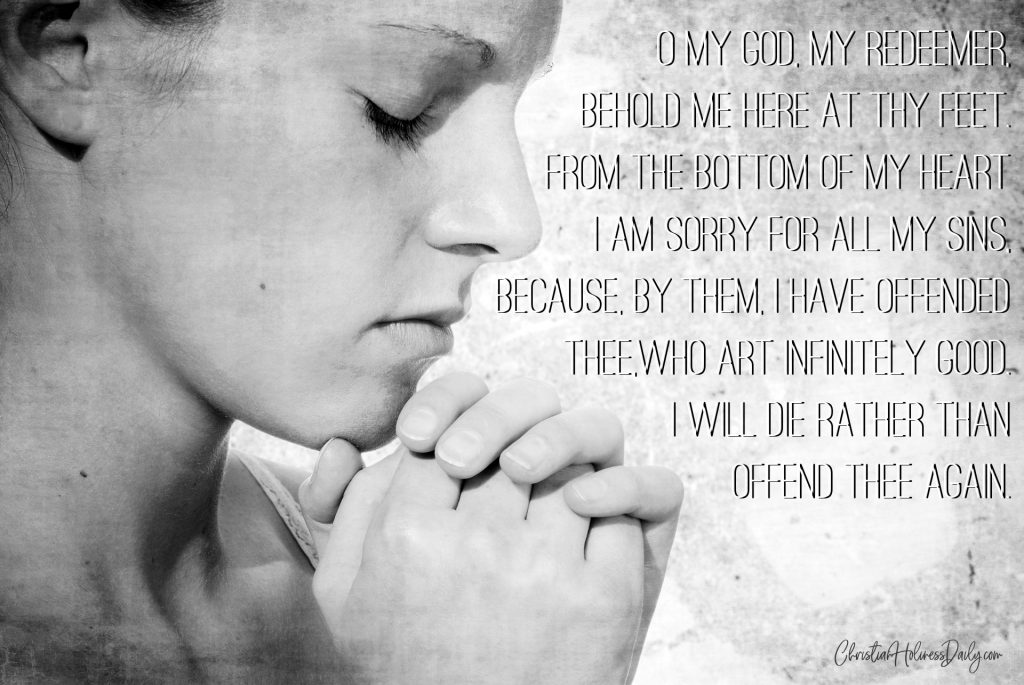
I love the sentiment from this Catholic prayer of contrition. It indirectly points to the Good News: We don’t have to die rather than sin again. Jesus has died for us, paid the price, and won victory over death. Because of His sacrifice, God forgives us of our sin, all of it. Our only duties are to repent and believe in (put our trust in) Jesus Christ, God will forgive us of all sin and unrighteousness. And, He will give us the power to find victory over sin so that we do not have to live as a slave bound in darkness. We are free indeed.


 Marks of a True Conversion
Marks of a True Conversion